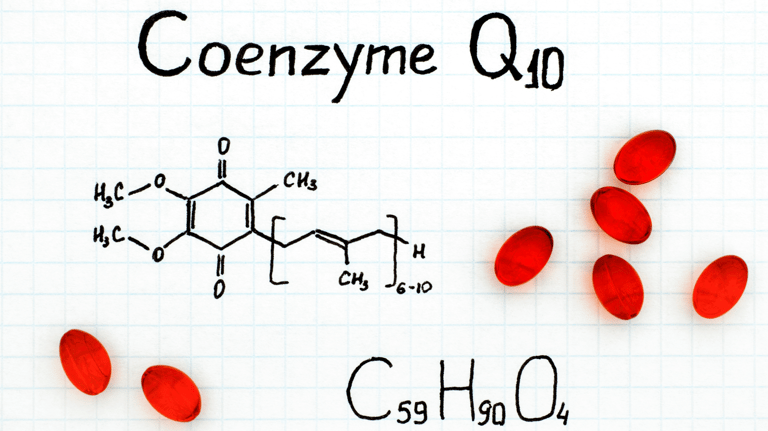When to Stop Taking CoQ10 for Fertility
2 min read


If you’ve been told to take CoQ10 to boost egg quality, you’re not alone. It’s one of the most recommended supplements on a fertility journey, especially for women over 35 or those with diminished ovarian reserve. But how long should you take it—and when is the right time to stop?
Here’s what the research and experts say.
Why CoQ10 Is Recommended for Fertility
CoQ10 (Coenzyme Q10) is a powerful antioxidant that helps your cells create energy. It plays a crucial role in mitochondrial function, which is key for egg health. As we age, our natural CoQ10 levels decline, which can impact egg quality. That’s why many fertility specialists recommend supplementing with CoQ10, particularly for:
Women over 35
Those with diminished ovarian reserve (low AMH)
People preparing for IVF or egg freezing
CoQ10, especially in its more absorbable form Ubiquinol, may help improve mitochondrial energy production in eggs, potentially improving their quality.
When to Start Taking CoQ10
Most doctors suggest starting CoQ10 at least three months before trying to conceive or beginning fertility treatments.
Why? Because it takes about 90 days for an egg to mature. Giving your body time to build up those antioxidant benefits can make a difference in egg health.
When to Stop Taking CoQ10
Once pregnancy is confirmed, many doctors recommend stopping CoQ10. Some suggest continuing into the first trimester, as early pregnancy places high energy demands on your cells and CoQ10 may support this process.
It’s important to follow your doctor’s guidance here. While CoQ10 is generally considered safe, individual protocols can vary depending on your fertility clinic and personal health needs.
How Much CoQ10 Should You Take?
The typical dose is 200mg to 600mg daily. Many specialists recommend Ubiquinol, which is easier for your body to absorb than standard CoQ10. Higher doses are often suggested for women with low ovarian reserve or those going through IVF, but your doctor can tailor this to your needs.
FAQs About CoQ10 and Fertility
Can I take CoQ10 with other fertility supplements?
Yes. CoQ10 is commonly combined with prenatal vitamins, Omega-3s, and other antioxidants. Always review your supplement plan with your doctor.
Are there side effects?
CoQ10 is generally well-tolerated. Mild side effects can include nausea, upset stomach, or headaches. Starting with a lower dose can help if you’re sensitive.
Is CoQ10 safe after embryo transfer?
Some clinics recommend continuing CoQ10 through early pregnancy, while others prefer you stop after transfer. Always check with your fertility team.
The Bottom Line
CoQ10 is a popular and well-researched supplement for improving egg quality, especially in women over 35 or with low ovarian reserve.
Start at least three months before treatment.
Stop once pregnant, unless your doctor advises otherwise.
Dosage matters—Ubiquinol at 200–600mg is typically recommended.
Every fertility journey is different, so always speak with your doctor about what’s best for you.
👉 Want more expert guidance? Explore our Fertility 101 Course, designed to support you through every stage of your fertility journey.
You don’t have to figure this alone
Inside fertie, you’ll get:
Expert-led courses to make informed decisions
Private support from women on the same path
Exclusive partner clinic perks & discounts
Disclaimer: This post is for educational purposes only and is not a substitute for medical advice. Always consult your healthcare provider for personalized guidance.
© 2025. All rights reserved.
Cookie Policy

We are committed to educating and empowering women to take control of their fertility and to live life on their own terms.
FOLLOW US ON
RESOURCES
CONTACT US
